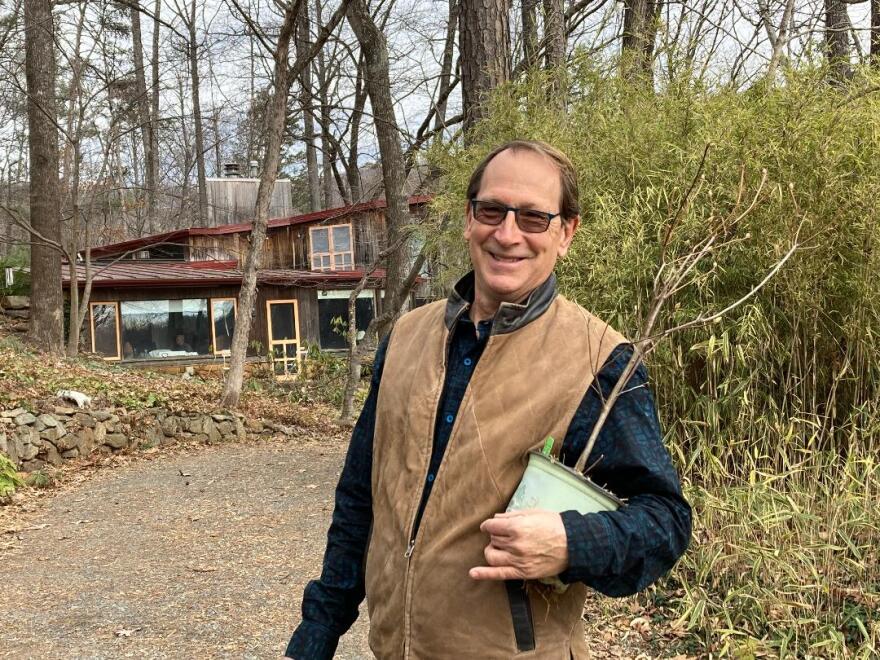Cole Burrell has been gardening since he was a kid, inspired by his great grandmother, his grandmother and his mom who, for a time, shared a house.
“They had a small city lot in Richmond," he recalls. "There was a plum tree that had a swing on it, so we could swing and eat plums at the same time, and a nice, sunny perennial border with old fashioned Siberian iris and that beautiful double pink peony that everyone grew back in the 50’s and 60’s.”
Later, the family moved to a spot near the James River and 1,800 acres of woodland in Chesterfield County. There Burrell brought plants from the forest into his yard.
“By the time my father sold the house it was literally just a solid carpet of spring beauties and trout lilies, beautiful ferns. It was really a lovely garden,” Burrell says.
He attended Virginia Tech, majoring in botany and horticulture, then went to work for the EPA, became curator of the National Arboretum – a place where he’d wanted to work since visiting at the age of 13.
He went on to curate the state arboretum in Minnesota where he studied landscape architecture and wrote Rodale's Illustrated Encyclopedia of Perennials -- the first of more than a dozen books he would pen or edit.
He returned to Virginia in 1998 to garden on 12 acres in the foothills of the Blue Ridge Mountains near Charlottesville. By then it was clear the climate was changing.
“No two years are the same, and they never have been, but the trend is later frosts and earlier springs," he explains. "When we first moved here we would often have a frost by the third week in September – sometimes even a true killing frost. We have not had that in the past 15 years.”
As a gardener, he doesn’t really mind.
“I’m very interested in winter gardening. I love precocious plants, so you can see I’ve got witch hazels blooming now. The plant above your car is a flowering apricot.”
But he’s worried about the birds who share his woodland property.
“The birds are nesting earlier, but the insects are hatching earlier, so some species that aren’t adapting as quickly, by the time their young hatch, the caterpillars have already pupated, and they don’t have food for their young. I would gladly give up a bloom in January for the fact that our bird populations would stay strong.”
He’ll speak about how he’s changed his gardening style to accommodate all the creatures who share his land on March 3rd at 7 p.m. as part of the Piedmont Master Gardener’s lecture series on Zoom.
Among other things, he’ll encourage people to mulch with the leaves that fell last fall.
“If you’ve got a shaded garden or if you have trees, the winter ground cover is really good for insects and moths and butterflies and for salamanders and things like that, so I’m not in the leaf blower camp.”
And he says gardeners should minimize disturbance of the soil.
“Every time you break the soil surface, that makes more weeds grow, and so if we change our gardening practices, we don’t cultivate, we don’t disturb, then we’re going to have fewer weeds.”
Whether your garden is big or small, Burrell says what you do will make a difference. To register for Burrell's talk and others sponsored by the Piedmont Master Gardeners, go to https://piedmontmastergardeners.org/events/


